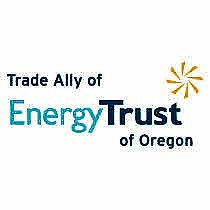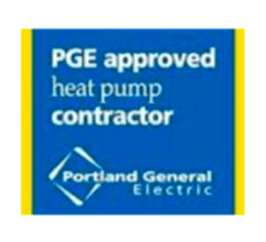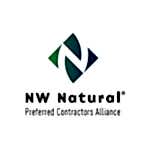Gas leaks are an invisible danger that can cause significant harm if not detected promptly. This threat is particularly relevant for homeowners in the Portland metro area, where older homes with gas furnaces and appliances are common. Timely detection of gas leaks is a high priority to prevent health risks, property damage, and even potential disasters. Jacobs will provide you with a comprehensive guide on how to detect a gas leak, highlighting the signs, dangers, tools for detection, and preventive measures.
What is Natural Gas?
When referring to a gas leak, most people mean natural gas, though propane is also installed in many homes. Over 177 million Americans use natural gas for their homes or businesses. Both natural and propane gas are important and reliable energy sources. Natural gas alone makes up over one-fourth of the energy consumed in the United States and runs through a 2.2 million-mile underground pipe network. From this network, the gas is transported safely via indoor pipes from the main supply to various appliances, such as stoves, water heaters, and furnaces. Each appliance has a dedicated connection to ensure efficient and steady gas flow.
Common Signs of a Gas Leak in Your Home
While rare, a gas leak can happen and can have some severe consequences. Here are the most noticeable gas leak signs you should be aware of.
Smell of Rotten Eggs
One of the most common indicators of a gas leak is the smell of rotten eggs or sulfur. Natural gas and propane are odorless, but gas companies add a chemical called mercaptan to give it a distinctive sulfur-like odor. If you detect this smell, leave your house or office immediately.
Hissing Sounds
A hissing sound near gas lines or appliances can indicate a gas leak. This noise is often caused by gas escaping from a small hole or crack in the line. It’s important to regularly check areas around your stove, water heater, and furnace for any unusual sounds.
Dead Plants
Plants are susceptible to changes in their environment. If you notice that house or outdoor plants near appliances or gas lines are wilting or dying unexpectedly, it could be due to a gas leak. Gas can inhibit a plant’s ability to absorb oxygen, leading to wilting, browning, and other visual cues that can be an early sign of trouble.
Common Sources of Gas Leaks
A gas leak can come from a variety of sources within the home:
- Kitchen: Stoves and ovens are common sources of gas leaks, especially if the pilot light goes out or if there are connection issues.
- Basement: Gas furnaces and water heaters are often located here and require regular maintenance to prevent leaks.
- Laundry Room: Gas dryers can develop leaks in their connections or hoses.
- Fireplace: Gas fireplaces or gas logs are potential leak points, particularly around the gas valve or burner.
- Garage: Gas-powered heaters or appliances in the garage might have connections that can leak.
- Pipes and Lines: Any gas lines running through walls or under the floor should be checked for signs of wear or damage.
The Dangers of Gas Leaks
This may not come as a surprise, but gas is an excellent energy source for modern household appliances, but can be detrimental to your health if you don’t catch it leaking.
Carbon Monoxide Poisoning
One of the most severe threats posed by a gas leak is carbon monoxide (CO) poisoning. CO is a colorless, odorless gas that can cause symptoms ranging from headaches and dizziness to nausea and unconsciousness. Having CO detectors in your home is a good idea to alert you to any dangerous levels. If inhaled, get to an area with fresh air. Call emergency services if needed to get medical help.
Fire and Explosion Hazards
Gas leaks can create highly flammable environments. A small spark or static discharge can ignite the gas, leading to fires or explosions. If you suspect a gas leak, avoid using anything that has a flame or battery and leave the area immediately. From a safe distance, call NW Natural Gas at 800-882-3377.
How to Detect a Gas Leak with Tools
Using specialized gas detection tools can provide an extra layer of safety for you and your family.
Carbon Monoxide Detectors
All homeowners should consider getting carbon monoxide detectors. These devices alert you when CO levels become dangerously high, providing an early warning system against this deadly gas. Installing CO detectors near sleeping areas and fuel-burning appliances ensures comprehensive coverage.
Gas Leak Detectors
Gas leak detectors are designed to sense the presence of natural gas or propane. These handheld devices can be used to inspect gas lines and appliances for leaks. Regular use of these detectors can help you catch leaks early, preventing potential hazards.
What to Do If You Suspect a Gas Leak
If you suspect a gas leak, taking immediate action can prevent accidents and ensure safety.
Evacuating Your Home
Smell a gas leak? Evacuate your home immediately. Avoid using electrical devices, including light switches, as they can create sparks. Distance yourself from the house and call for help from a safe location. NW Natural Gas has a 24-hour emergency hotline to report gas leaks: 800-882-3377 that would be a good contact to put into your phone.
Extinguish Open Flames
If you suspect a gas leak, ensure all open flames are extinguished immediately. This includes turning off stoves, candles, and fireplaces. Don’t start a car, turn on lights, use a telephone, or anything with a battery. Even the smallest flame or spark can trigger a fire or explosion in the presence of gas. Exercising caution is crucial for your safety and that of your neighbors.
Don’t Put Out Flames
If the gas does ignite, don’t try to put it out. Just leave the area and call 911 and the gas company.
Calling for Help
Once you have contacted your local gas company or emergency services to report the leak, let them handle it. They have the expertise and equipment needed to handle the situation safely. Do not re-enter your home until professionals have given the all-clear.
NW Natural Gas makes all this easy to remember with Smell. Go. Let Us Know.
Causes of Gas Leaks in HVAC
Modern furnaces are engineered and built to be extremely safe. However, the best way to avoid a problem in the future is to be aware of what could go wrong.
- Improper Installation: Gas appliances and systems that are not installed correctly can lead to leaks. Ensuring professional installation can minimize risks.
- Aging Pipes and Appliances: Over time, gas pipes and appliances can deteriorate, leading to leaks. Regular maintenance and replacement of old components are crucial.
- Corrosion: Exposure to moisture and other environmental factors can cause metal pipes to corrode, creating small leaks over time.
- HVAC System Faults: Gas HVAC systems can develop leaks due to issues like cracked heat exchangers or faulty connections. Regular inspections and maintenance are essential for safety.
- Natural Disasters: Events such as earthquakes or severe storms can damage gas lines and connections, increasing the risk of leaks.
- Wear and Tear: Regular wear from daily use can compromise gaskets, valves, and seals, potentially leading to gas leaks if not routinely checked and serviced.
Hiring qualified professionals for installation and maintenance ensures that HVAC systems operate safely and efficiently.
How Regular Furnace Maintenance Helps Prevent Gas Leaks
Regular maintenance of your furnace and other gas appliances can prevent leaks and ensure they operate efficiently.
Furnace Inspection Basics
Scheduling regular furnace inspections can identify potential issues before they become serious. Technicians will check for cracks, corrosion, and wear that could lead to gas leaks.
Importance of Professional HVAC Services
Professional HVAC services provide thorough inspections and maintenance. These experts have the tools and knowledge to ensure your system is safe and efficient, reducing the risk of gas leaks.
Gas HVAC Maintenance with Jacobs Heating
Detecting gas leaks early is crucial for maintaining a safe home environment. By being aware of the signs, understanding the dangers, and using appropriate detection tools, you can protect yourself and your property from the harmful effects of gas leaks. Jacobs Heating & Air Conditioning offers a variety of HVAC maintenance plans to keep your system running efficiently and reliably.
Reach out to us to schedule a consultation and installation. We’re here to answer all your questions.










